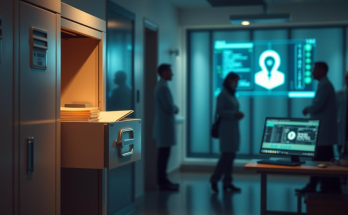Are you experiencing some type of shoulder injury and wondering whether you may have a slap tear? A slap tear which is an abbreviation for “superior labrum anterior to posterior” is an injury to the glenoid labrum in your shoulder. This is the cartilage that covers your shoulder socket.
Slap tears are increasingly common but it can often be difficult to know if you have a slap tear or some other type of common shoulder injury.
If you have some type of shoulder injury and are trying to figure out whether you might have a slap tear, ask yourself the following 9 questions:
1. Do you hear some type of popping or clicking sound in your shoulder?
2. Are you experiencing pain when you lift your arm over your head?
3. Do you feel pain when you carry or throw objects?
4. Does your shoulder feel weak?
5. Do you feel like your shoulder is unstable or might come out of joint?
6. Do you feel an overall aching pain sensation that is difficult to pinpoint?
7. Do you have a catching sensation in your shoulder?
8. Are you having a hard time sleeping due to the pain in your shoulder?
9. If you are an athlete engaged in some type of overhead or throwing activity, are you experiencing a decline in your overall strength?
If you answered “yes” to the questions above, it is very possible that you have a slap tear. If you are suffering from this type of shoulder injury, you will likely need to contact a qualified medical care provider for a thorough medical assessment and treatment options.
When you see a doctor like a board certified orthopedic surgeon to assess whether or not you have a slap tear or some other type of shoulder injury, your doctor will likely conduct a variety of diagnostic tests to examine how your shoulder moves. Your doctor will also want to gauge the pain you are experiencing in your shoulder.
It is also possible that your doctor may request an x-ray to make sure that you do not have other shoulder injuries like a shoulder fracture, shoulder tendinitis, rotator cuff injury, or osteoarthritis.
Depending on your situation, your doctor may also decide to request an MRI arthrogram. Often a dye is injected into your shoulder before an MRI scan so that the labrum tissue is more visible. Arthroscopic surgery is also used to identify a slap tear and determine the severity of the tearing.
Treatment for a slap tear includes both nonsurgical and surgical interventions. For minor cases that do not require surgery, a combination of rest, ice, anti-inflammatory medicine, and physical therapy may be recommended by your orthopedic doctor.
If you need surgery to repair your injury, arthroscopy is less intrusive than open surgery and is generally considered the gold standard for slap tear repair.
If you are suffering from some type of shoulder pain or injury, keep in mind that a skilled and experienced orthopedic surgeon is qualified to diagnose and treat a wide variety of shoulder injuries.



